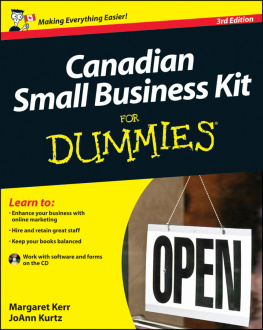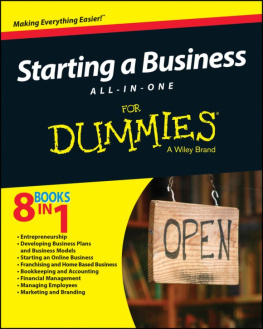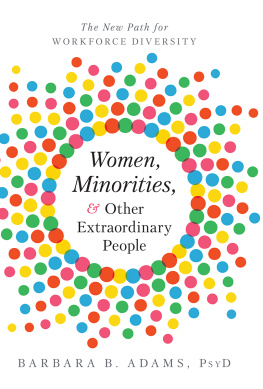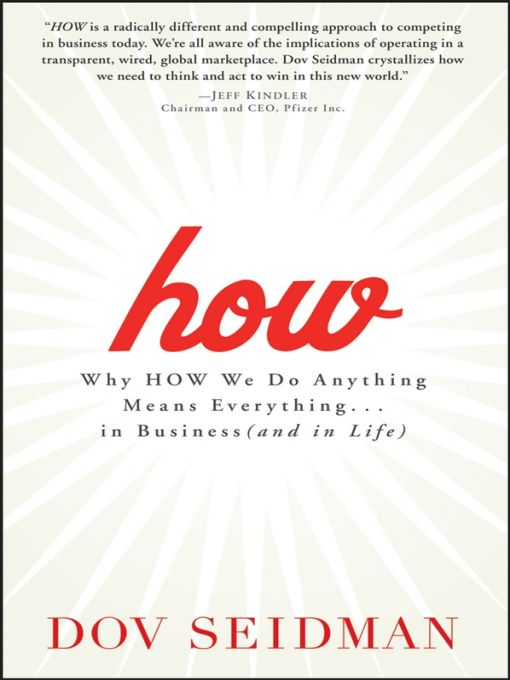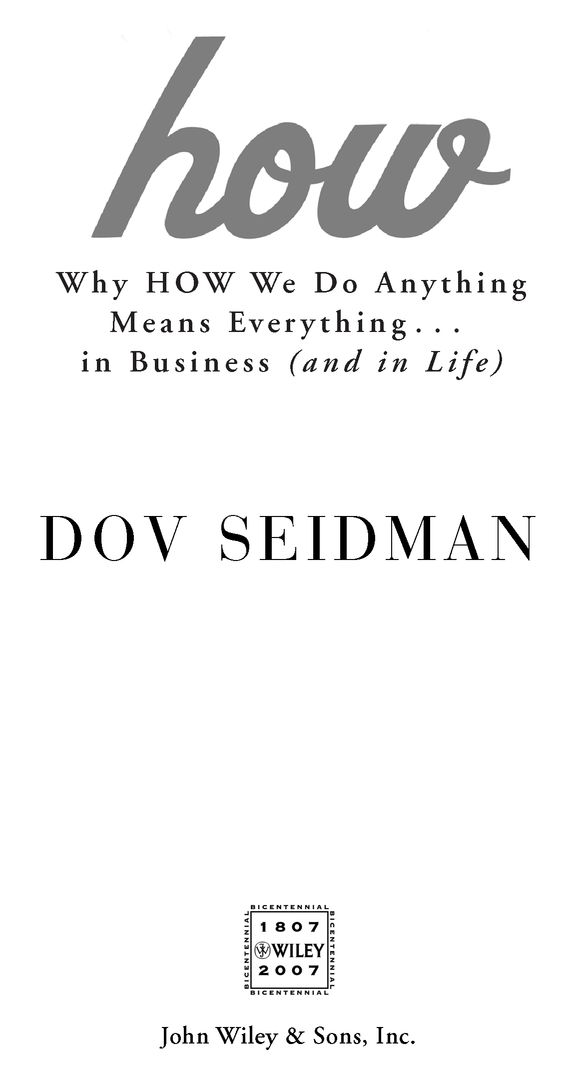Table of Contents
To my mother, Sydelle, for my first and lasting sense that HOW matters
To my wife, Maria, for the HOW that matters most to me
Preface
This is a HOW book, not a how-to book. Whats the difference between how-to and HOW? Everything.
In the twenty-first century, it isnt what you do that matters most. In fact, if you line up all the winners in business today, you will notice that few win anymore by what they make or do. If you make something new (or just better, faster, and cheaper), the competition quickly comes up with a way to make it still better and deliver it at the same or even lower price. Customers instantly compare price, features, quality, and service, effectively rendering almost every what a commodity.
This is not just true of businesses; to a large degree, the same holds true for the way individuals get ahead and accomplish their goals. Specialized knowledge or expertise differentiates you for a moment in time, but it likely wont carry any of us through an entire career. Changing jobs, companies, and even industries now often involves adapting knowledge skills to a new set of conditions.
Yet, the drive for differentiationpersonal, professional, and organizationallies at the heart of all our business endeavors (and many of our personal ones as well). We all still want to stand out, to be bold, to be uniquely valuable, to distinguish ourselves from the competition, to do things others cant copy, and to be number one. We always will. But in a commoditized world, we are running out of areas in which to do so.
There is one area where tremendous variation and variability still exist, however. One place that we have not yet analyzed, quantified, systematized, or commoditized, one which, in fact, cannot be commoditized or copied: the realm of human behaviorhow we do what we do.
Think about it. If you make stronger connections and collaborate more intensely with your co-workers, you can win. If you reach out and inspire more people throughout your global network, your productivity skyrockets. If you keep promises 99 percent of the time and your competitor keeps promises only 8 out of 10 times, you can gain critical advantage in the marketplace. If your interactions with others deliver a more meaningful customer experience, you engender a loyalty that brings them back again and again. When it comes to how you do what you do there is tremendous variation, and where a broad spectrum of variation exists, opportunity exists. The tapestry of human behavior is so diverse, so rich, and so global that it presents a rare opportunity, the opportunity to outbehave the competition.
The world today, powered by vast networks of information, connects and reveals us in ways we have only just begun to comprehend. Groundbreaking technological advances have put us in intimate contact with others about whom we often know little and understand even less. As a result, many of the tried-and-true ways of working together and getting ahead no longer apply. These same advances have also given us unprecedented power to see through the walls of organizations and evaluate not just what they do, but how they do it. Ive come to believe that the innovations of the twenty-first century will come not just in new products, services, or business models and strategies, but in new ways to create value and differentiation, innovations in HOW. The best, most certain, and most enduring path to success and significance in these dramatically new conditions lies not through raw talent and skill, but through behavior over time. This book illuminates the power and possibility of this very simple idea.
Who am I to be telling you this? Im a businessman, and Ive come to understand this after a 13-year entrepreneurial journey that has given me hands-on experience working with people from the shop floor to the boardroom as founder and CEO of LRN Corporation, a company that helps global enterprises of all sizes learn to win through HOW. My journey started modestly enough, as many such business journeys do. In college and graduate school, I studied philosophy, and then went to law school. After I graduated, I spent time working in a private law firm. Toiling away in the law library, it dawned on me that someone somewhere had researched the very issue I was working on, and inevitably knew more about it than I did (which was zero). I saw an opportunity to make legal knowledge accessible to a large number of people in business at a low price, so I built a network of the finest legal minds that could deliver expert knowledge in a far more efficient, democratic way. In short time, the business flourished, and we found ourselves helping some of the largest companies in the world confront their legal challenges and manage their risk.
I soon realized, however, that the core of our efforts lay in helping our partners put out fires by responding to legal challenges that had already arisen. I began to believe that we could be of better service by helping them design and build fireproof buildings, to help them develop a new approach to getting their HOWs right and prevent these legal problems from arising in the first place. So we evolved as a company.
For a while, it often felt like we were selling vitamins to companies whose leaders did not realize they could get sick. Then a series of corporate scandals hit, and suddenly we found ourselves in the middle of a global discussion. The University of California at Los Angeles (UCLA) invited me to give their commencement speech, convinced that the power in HOW was the most practical message their graduating class could hear. The U.S. Federal Sentencing Commission asked me to testify about new ways of achieving higher standards of conduct and responsibility in business as they considered revisions to the Federal Sentencing Guidelines. The phone started ringing and the e-mail began to pour in from companies that realized there was an epidemic going on and they could catch it at any time. I was on TV, traveling the country, and speaking to corporate boards and employee groups of some of the biggest, most venerated companies in the world. LRN quadrupled in size.
Suddenly, it was practical to be principled. It was even fashionable. But I saw this as a double-edged sword. Sure, more people acting in a principled way, even if for the wrong reasons (to avoid prosecution, minimize liability, or build good PR), still meant more people acting principled, and that was a net good. However, I sensed that people lacked a deep understanding of why they should be principled, and more important than just being principled, why they should dedicate new energy and emphasis to how they pursue their goals and interests. From that basic notion, LRN has continued to change and expand its vision to help companies of all stripes and sizes the world over through new approaches to compliance, governance, and organizational culture. We now reach, work with, and help sustain Do It Right, winning cultures with more than 10 million people in hundreds of companies that do business in over 100 countries around the world. To thrive in and profit from the new conditions of the information age, both organizations and the individuals who work in them need to understand the power in HOW. That is what this book is about.
As I said, this is a HOW book, not a how-to book. How-to books offer step-by-step prescriptions for personal and business improvement:


